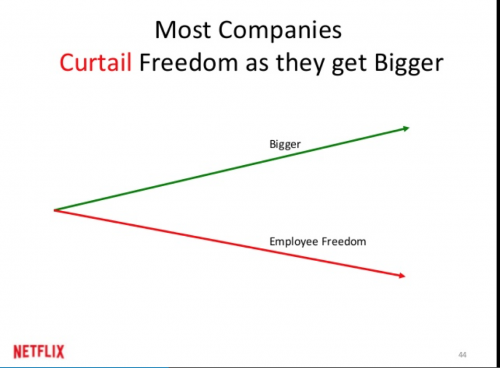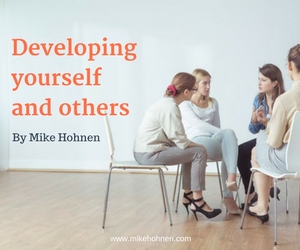
‘Another, customer complaint!’ thought the manager. ‘And what a stupid one at that. Some of our people just don’t get it. We will have to create a new rule for this kind of situation.’ And so he does. Up goes the memo on the information board, where it joins quite a few other new rule memos.
But rules only work when we can clearly define the situation and set clear boundaries. However, what we are looking for in our customer experience is personalisation. We want employees who are flexible in their approach and who can think on their feet. And with as few boundaries as possible… If there is one thing a customer hates, it is hard boundaries. ‘Sorry, sir that is not my section. Please ask your waiter.’
When we analyse why we create rules, it is not because we have a problem with the top performers. The top performers use their own good judgment to solve situations, which are typically also the situations that lead to praise and four-star reviews on social media. It’s the bottom 30% of the crew who need rules.
The more rules we create, the less room there is for good judgment.
The solution to the customer complaint is not to create another rule. It’s performance management, but not in the form of making a note for the yearly appraisal meeting, but here and now feedback and coaching. And, ultimately, if we have team members who don’t get it, they should not be on the team.
We can never create enough good rules to cover every situation. And even if we could, that would still not be the solution. Because top performers hate rules. What drives their engagement is autonomy, being able to use their own good judgement from situation to situation. And if you take that away, they will find somewhere else to work, a business where good judgement and personal initiative are appreciated.
But how will new employees know what good judgement looks like in our context?
This is where principles come in. Principles are the fabric of a great service culture. Principles frame what we believe around here. Principles are the foundation for our decision. Nordstrom, the US retail giant, has a very simple approach:
“Use your best judgment in all situations. There will be no additional rules.”
Southwest Airlines tell its employees: “You may do anything you are not uncomfortable doing in order to solve a passenger’s problem.”
Obviously, some people have better judgment than others. But that means that performance management is not about enforcing the rules but about helping people make better decision – and ultimately weeding out those who just don’t get it.
Get rid of the rule book and start thinking more about what should be the guiding principles.
 This spring we ran a series of blog posts around development, developing yourself and others. We have collected and edited those blog posts into a simple e-book that you can download below if you would like to explore this subject further.
This spring we ran a series of blog posts around development, developing yourself and others. We have collected and edited those blog posts into a simple e-book that you can download below if you would like to explore this subject further.
[…] can look at the employee experience from 10.000 ft. as we have done in previous posts (great cultures, conversations and employee life […]